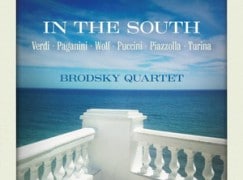The composer Kaija Saariaho on sexism in classical music
mainKaija Saariaho’s speech at the McGill University on November 3rd:

As a Finnish, left-handed woman composer I represent several minorities, a subject that I would like to briefly discuss here. After having gone through many battles during my early professional years I felt that the equality of women in music was advancing.
Therefore I have not spoken about this publicly for many years. Recently, however, there have been polemics generated by statements coming from public persons and even the head of the highest music education institution in France, arguing that there are several natural reasons to explain why women are not suitable for conducting. This made me understand that today, 30 years after my own battles, young women still have to experience much the same everyday discrimination I went through.
In reading more studies about our recent history in this matter, I have understood that the situation is not slowly getting better, but that the improvements seem to have stopped a while ago. In politics, economy, research and culture in general, women still have to find their place. This is a matter of custom or habit and of familiarization, and in many fields we have been able to change these customs already.
I feel a strong necessity to act against the deeply commercial society and a world vision perhaps too univocal because predominantly controlled by men. We need more real, profound human culture, not only the popular mass consumer culture, which is invading the planet and which is mostly profit-driven. All over in the world, we need to pay more attention to how we educate our children, to teach them to grow up into empathetic and caring human beings. We need to incorporate more of the brainpower of women to create a diverse, multidimensional society.
Exactly how to realize this, I don’t know. Nobody wants to be evaluated for things other than their actual skills. But I would like us all to realize (or, to be reminded) that the situations in which we make the evaluations are never objective and that our judgments, however rational they seem to us, can always be colored by our biases.
Institutions such as McGill University are primary venues, well-equipped to strive for equal rights and possibilities in all the fields of study. Please continue this work by encouraging and supporting a rich human future, a future of diversity AND equality.
Thank you.
h/t: Anssi Karttunen
See also:
Why Scandinavian women make the rest of the world jealous
Click here.






Comments